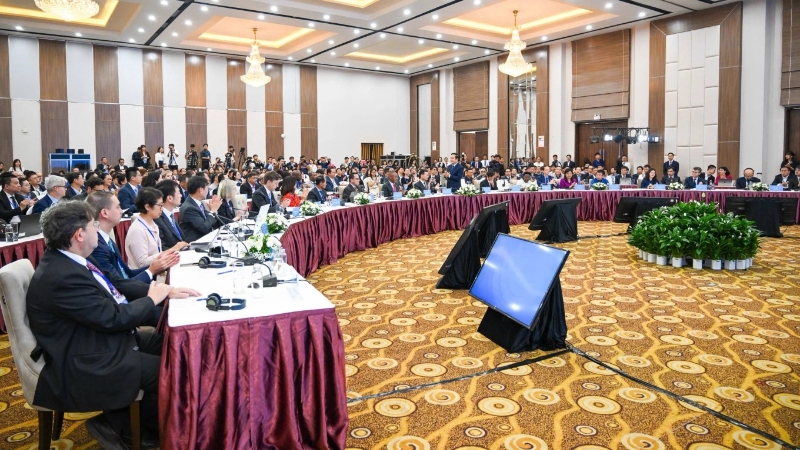
That was the affirmation of Ms. Pauline Tamesis, Resident Coordinator of the United Nations in Vietnam, when she chaired the Discussion "Shaping contributions to global artificial intelligence governance" at the Ministerial Roundtable on AI Governance on the morning of October 27, taking place within the framework of International Digital Week 2025.
"Artificial intelligence is a global concern and Burundi is putting AI at the center of its national development strategy," said Ms. Inarukundo Francine, Permanent Secretary of the Ministry of Finance of Burundi. In addition, Ms. Inarukundo Francine expressed her desire to further deepen cooperation with Vietnam, especially in the areas of sharing expertise, transferring technology, training young talents and jointly establishing innovation labs.
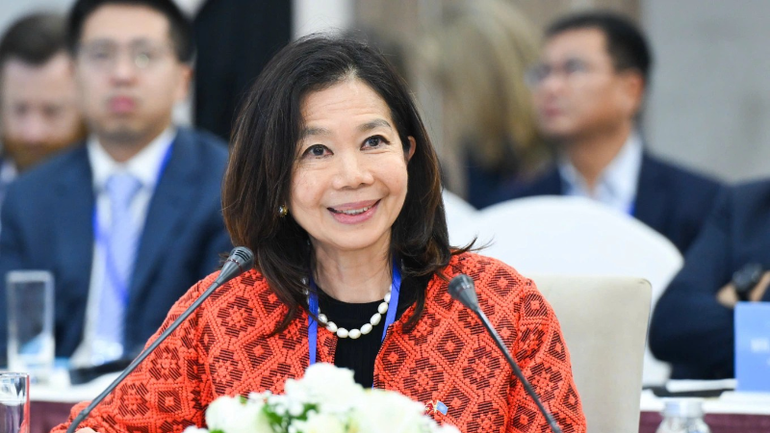
At the conference, international delegates also shared many lessons learned and recommendations in the process of developing and applying AI technology. Mr. Julien Guerrier, Ambassador of the European Union to Vietnam, said that the AI strategy of the European Union (EU) is built on three pillars: excellence, trust and international cooperation. The EU's approach aims to promote research and industrial capacity, while ensuring a legal framework for responsible AI development. "The EU also focuses on addressing risks related to generative AI," Mr. Julien affirmed.
The Australian Ambassador to Vietnam shared that from August 2024, all Australian federal agencies will be required to appoint an official responsible for AI and publish a transparency statement when using this technology. He also gave practical lessons when affirming that human supervision always plays an essential role in operating the system, even with the most modern AI systems. In addition, regulations on artificial intelligence also need to be consistent to avoid over-regulation, which hinders development.
Sharing the same view, Mr. Philipp Agathonos, Ambassador of Austria to Vietnam, said that improving human capacity in controlling data sources is a key factor to ensure the reliability of AI. He also warned that many AI systems currently use poor quality data, blurring the line between real and fake, and expressed concern about the monopoly of high-quality chips, calling on countries to coordinate to balance the supply chain, avoiding chip production falling into the hands of a few businesses.
The conference concluded with a speech by Mr. Nguyen Manh Hung, Minister of Science and Technology. He delivered the central message that AI governance has become a matter of global cooperation, not only in vision but also in action. AI development needs to aim for the goal of "AI for all, not just for a few". In addition, the legal framework on AI needs to be built to go hand in hand with trust and innovation, both complying with international standards and suitable for each country's context.
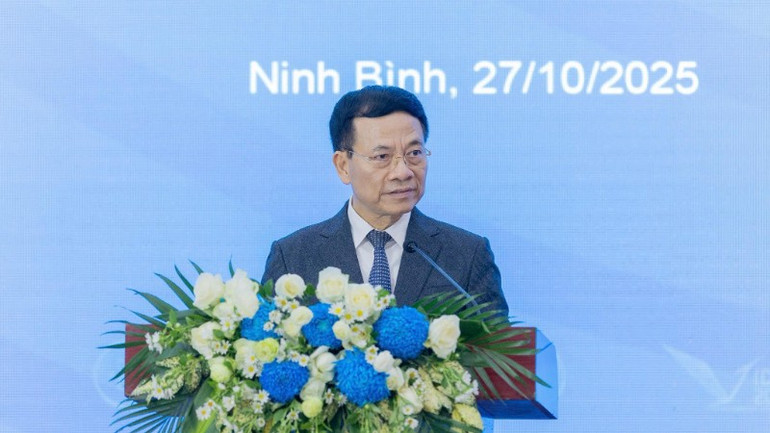
Finally, he emphasized, AI is a tool to amplify human creativity, not replace humans; technology must be inclusive.
The Ministerial Roundtable on AI Governance concluded with a message towards a safe, transparent, and sustainable digital future; where artificial intelligence is responsibly governed and serves the common good of the whole society.
Source: https://nhandan.vn/dinh-hinh-dong-gop-vao-quan-tri-tri-tue-nhan-tao-toan-cau-post918517.html


![[Photo] Prime Minister Pham Minh Chinh chaired a meeting to discuss solutions to overcome the consequences of floods in the central provinces.](https://vphoto.vietnam.vn/thumb/1200x675/vietnam/resource/IMAGE/2025/10/29/1761716305524_dsc-7735-jpg.webp)

![[Photo] Human love in the flood in Hue](https://vphoto.vietnam.vn/thumb/1200x675/vietnam/resource/IMAGE/2025/10/29/1761740905727_4125427122470875256-2-jpg.webp)
![[Photo] Prime Minister Pham Minh Chinh chaired a meeting to evaluate the operation of the two-level local government model.](https://vphoto.vietnam.vn/thumb/1200x675/vietnam/resource/IMAGE/2025/10/29/1761751710674_dsc-7999-jpg.webp)

![[Photo] Hue: Inside the kitchen that donates thousands of meals a day to people in flooded areas](https://vphoto.vietnam.vn/thumb/1200x675/vietnam/resource/IMAGE/2025/10/29/1761738508516_bepcomhue-jpg.webp)
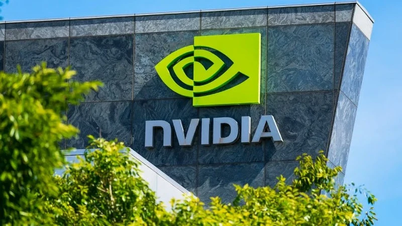
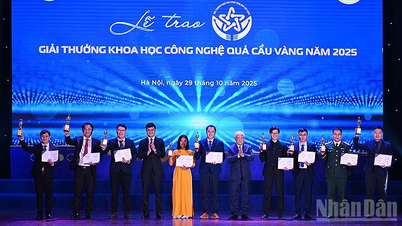
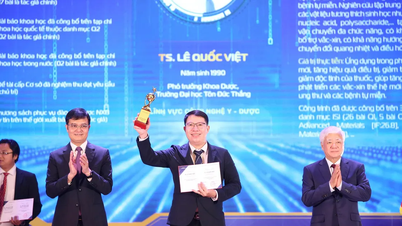










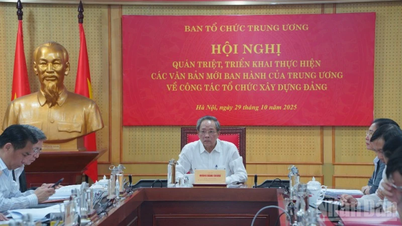
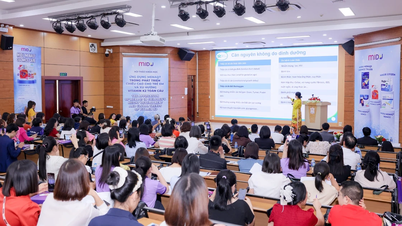
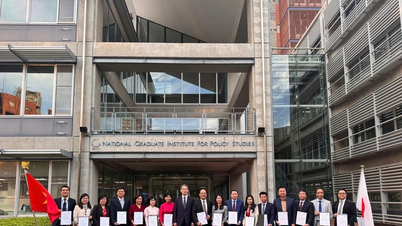
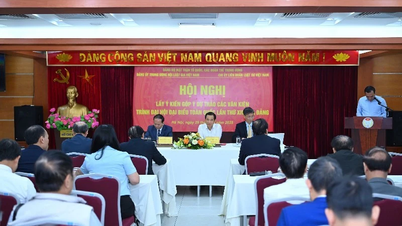
![[Photo] Prime Minister Pham Minh Chinh chaired a meeting to evaluate the operation of the two-level local government model.](https://vphoto.vietnam.vn/thumb/402x226/vietnam/resource/IMAGE/2025/10/29/1761751710674_dsc-7999-jpg.webp)
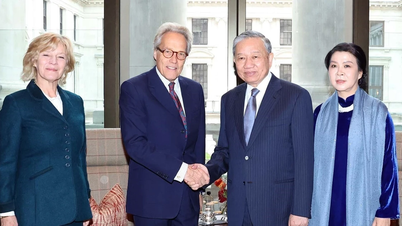



































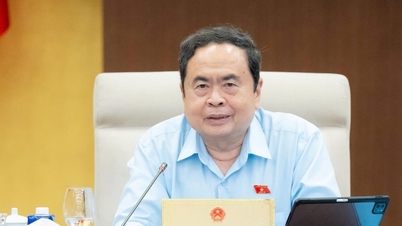

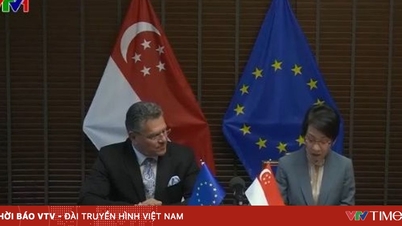
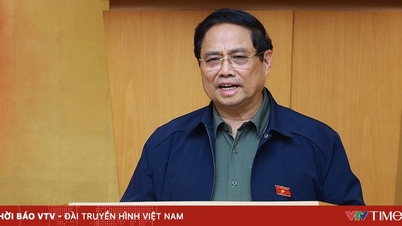
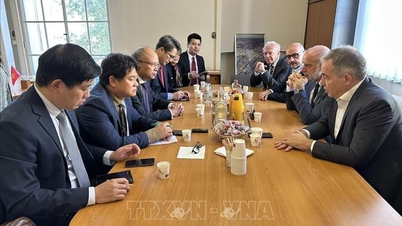

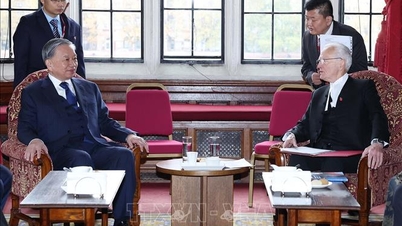
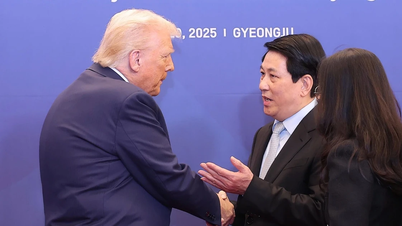


![[Live] Concert Ha Long 2025: "Heritage Spirit - Brightening the Future"](https://vphoto.vietnam.vn/thumb/402x226/vietnam/resource/IMAGE/2025/10/29/1761743605124_g-anh-sang-am-thanh-hoanh-trang-cua-chuong-trinh-mang-den-trai-nghiem-dang-nho-cho-du-khach-22450328-17617424836781829598445-93-0-733-1024-crop-1761742492749383512980.jpeg)



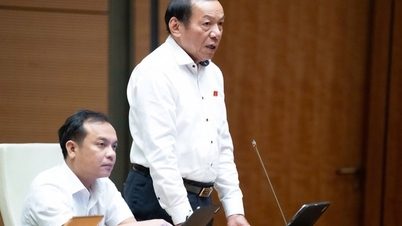







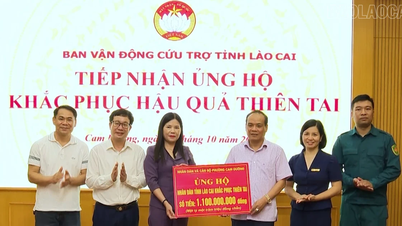

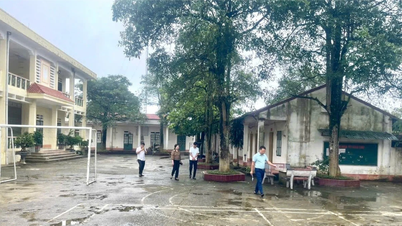















Comment (0)